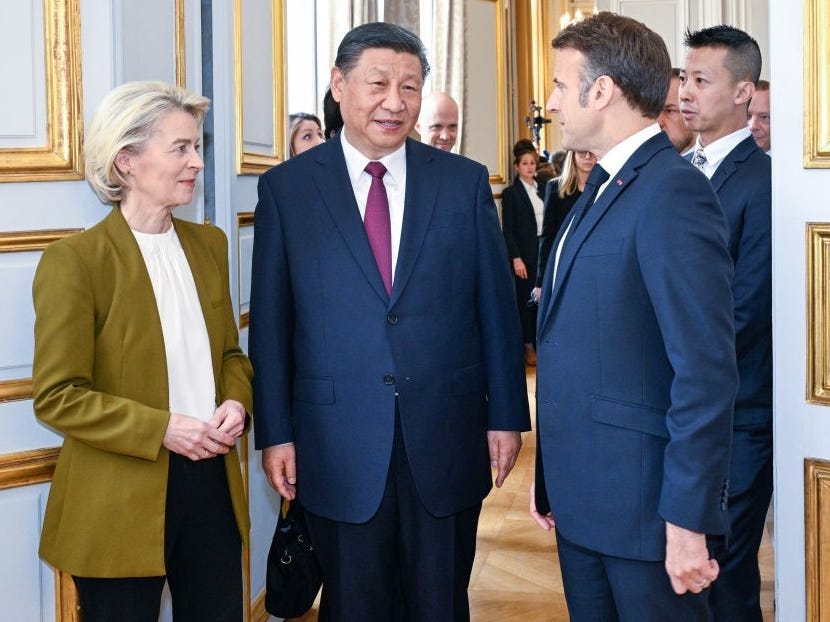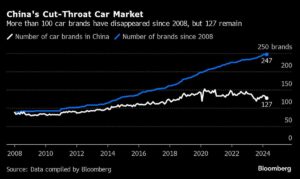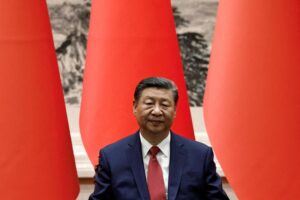-
Chinese leader Xi Jinping is courting trade and influence in Europe.
-
But European firms in China report dwindling confidence in their operations.
-
A key challenge EU businesses face is in attracting international talent to China.
Chinese leader Xi Jinping is in Europe, trying to charm his way to more trade, investments, and influence in France, Serbia, and Hungary.
Despite the pomp and hype over Xi’s trip, European firms in China say they aren’t quite convinced about their prospects in the country, according to a European Union Chamber of Commerce in China report released on Friday. Its survey of 529 respondents was conducted in January and February.
According to the business chamber’s survey, just 13% view China as a top investment destination — a record low. It’s also much lower than the 27% of EU firms who viewed China as a top investment destination in 2021, when the country was still in the midst of on-off pandemic lockdowns.
China’s economy is in a painful transition from its reliance on lower-cost manufacturing and real estate to what Xi’s administration calls the “new three” sectors of electric vehicles, lithium batteries, and solar cells.
The economic drag on business sentiment was evident from the survey results, with more than two-thirds of respondents saying that doing business in China became more difficult in 2023 — the highest proportion on record.
EU firms’ China operations are ‘decoupling’ from their headquarters
It’s not just the gloomy economy and slowing demand that are weighing on investor confidence. EU firms have also started to “decouple” their operations in China as the number of foreign nationals employed locally falls.
“There are worrying signs that some European companies are either silo-ing operations or scaling down their ambitions in China as the challenges they face start to outweigh the benefits of being here,” Jens Eskelund, the chamber’s president, said at a press conference, per Reuters.
More than a third of respondents face challenges attracting or retaining international talent in China, with 70% citing a lack of willingness among potential candidates to relocate as the key issue, according to the survey.
“Members report that a drop in the number of Europeans employed by their China operations has been a key factor behind the trend of decoupling between HQs and China operations, as it has led to a decrease in mutual understanding and trust,” according to the report.
It also makes it increasingly difficult for the China operations of the EU firms to get approval from their headquarters.
This decoupling — which was reported by two-fifths of respondents — means local Chinese operations and their headquarters now have less understanding of on-the-ground realities — “a dynamic that is being exacerbated by the fact that more and more restrictions are being placed on access to reliable information about China’s economy,” per the report.
The European business chamber called for “full access to legitimate and trustworthy sources of economic data” in its report.
“Without this, many CEOs will continue to feel they simply do not have the transparency and legal certainty they need to justify to their boards that there is a need to increase — or in some cases even maintain — their investments,” it added.
A record low 42% of EU companies said they plan to expand their operations in China this year.
Read the original article on Business Insider



